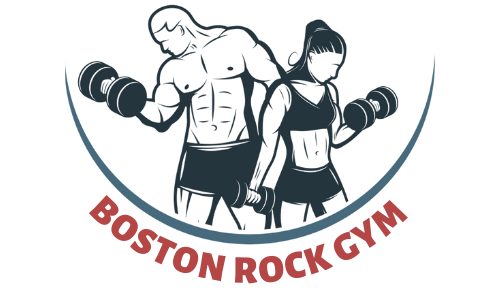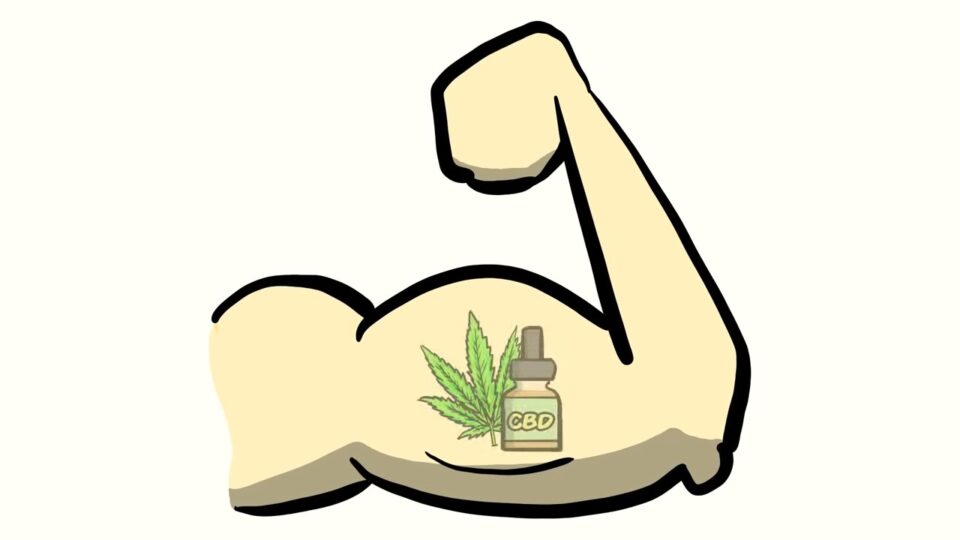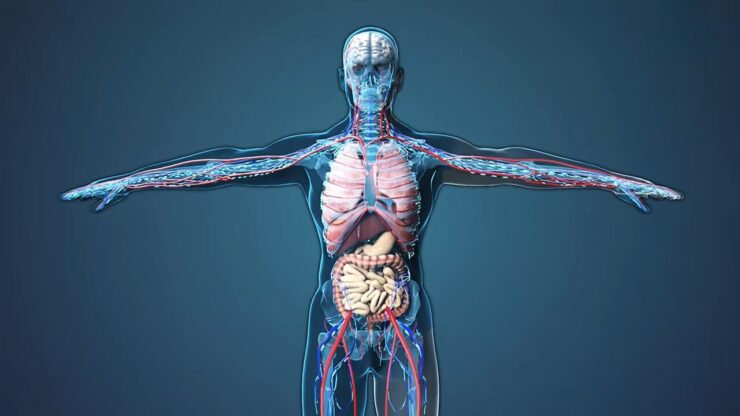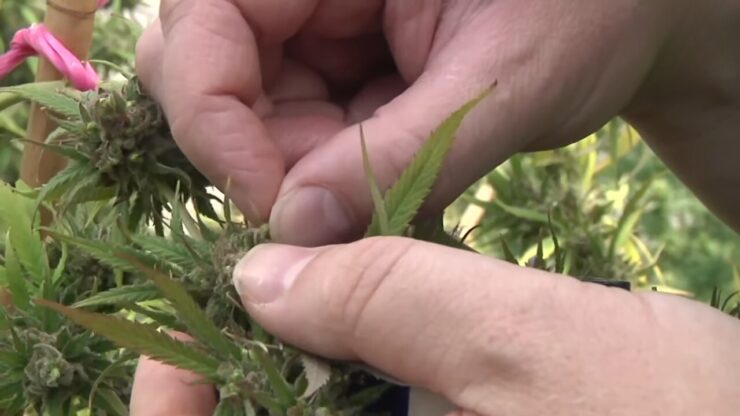If you’ve been following the latest developments in health and fitness, you’ve no doubt come across cannabidiol. Up until recently, this hemp-based compound has been primarily used as a therapeutic for physical and emotional health concerns like stress, pain, sleep problems, digestive issues and other conditions.
But a growing body of research backed by hundreds of clinical studies suggests that CBD, as it is commonly called, plays a significant role in muscle recovery.
As noted by Cannabiva.com, using CBD post workout has the potential to enhance muscle recovery, which can be attributed to its anti-inflammatory and analgesic effects. It is suggested that these properties can help alleviate muscle pain and reduce delayed onset muscle soreness often experienced after high-intensity resistance exercise.
Moreover, it is speculated that CBD might even contribute to building muscle by mitigating exercise-induced damage to skeletal muscles.
Contents
Scientific Explanation of CBD’s Role
The endocannabinoid system (ECS) and central nervous system (CNS) play a crucial role within the human body to help maintain homeostasis, or overall balance and stability. These essential systems are composed of various sub-systems that include endocannabinoids, receptor sites, neurotransmitters, and other neurochemicals responsible for everything from sleep cycles and stress management to pain sensitivity and cellular reproduction.
Cannabinoids, such as CBD derived from the cannabis plant, interact with all of these systems in one way or another.
For example, when we work out and break down our muscles, receptors in the endocannabinoid system trigger various physiological responses such as anti-inflammatory action, pain relief, and even support for rebuilding cells.
Benefits of CBD in Post-Workout Recovery
Cannabidiol is widely acknowledged for its anti-inflammatory attributes. This quality renders it a powerful supplement conducive to post-exercise recuperation. Rigorous physical activities such as weight training or high-intensity cardio often precipitate muscle inflammation—an issue that can be mitigated by CBD.
Research has shown that the endocannabinoid system manages inflammation within our bodies and regular consumption of CBD following workouts could help to alleviate this inflammation. This action is just a part of cannabidiol’s beneficial effects for fitness professionals and hobbyists.
The benefits for taking CBD following a workout (and even taking it before a workout) include reduction of muscles spasms, less muscle pain, better blood flow, decreased mental stress, and improved sleep cycles.
Anti-inflammatory Effects of CBD
Overworked muscles tend to inflame, so finding ways to minimize inflammation for better muscle recuperation may help to speed up the overall process of post-workout recovery.
Inflammatory cytokines are one way in which our body responds to intense workouts. These proteins are discharged by cells during physical trauma or tension. They can prolong recovery and induce discomfort if their response becomes excessive.
A number of studies indicate that CBD exhibits anti-inflammatory attributes by specifically suppressing proinflammatory cytokine releases. This has been confirmed by a recent study where researchers deduced significant reductions in primary inflammatory cytokine levels within their subjects following CBD administration.
These studies suggest that CBD could serve as a natural, organic substitute for mitigating inflammation following physical exertion and exercise.
Reduction of Muscle Spasms with CBD
Muscle spasms, characterized by involuntary contractions that may cause pain and impede healing processes, frequently arise following strenuous physical activity or trauma due to the build-up of lactic acid or neural compression.
A plethora of research indicates potential benefits from cannabinoids such as CBD in mitigating muscle spasms. An example is a study demonstrating reduced spasticity-related symptoms among multiple sclerosis patients who used treatments based on cannabinoids.
This information sheds light on how integrating cannabinoids into post-exercise regimens could expedite muscular recuperation.
Reduction in Muscle Pain
Aside from alleviating inflammation, another key benefit of CBD for post-workout recovery is its ability to alleviate muscle pain and soreness. When you push your body hard during a workout session, it’s natural to experience some degree of discomfort afterward.
CBD has analgesic properties that can help manage this discomfort effectively. It also targets specific receptors in the central nervous system and immune system that are responsible for stress management.
Studies have shown that people who use CBD after their workouts report less muscle pain compared to those who don’t use any supplements. This reduction in pain not only improves comfort but also allows for more consistent training schedules without extended breaks due to soreness.
Better Blood Flow
CBD research has shown that this cannabinoid may be a vasorelaxant, which means it can help to relax and widen the blood vessels. This effect in the body results in improved blood flow, as well as speedier deliver of nutrients and oxygen to critical systems in the body, including the muscular system.
Reduced Oxidative Stress
Working out, especially intense workouts, may lead to oxidative stress on muscles. This could potentially lead to long term problems with skeletal muscles.
While studies into this condition involving CBD are sparse, cannabidiol has been shown to possess strong anti-oxidative properties. This means that hemp extracts like CBD could help protect against oxidative stress and thereby promote faster muscle healing.
Less Stress and Anxiety
While exercise has many benefits for health, including reduction of stress and anxiety, intense exercise could have the opposite effects.
Overtraining and physical stressors on the body have the potential to cause anxiety and stress, especially in serious competition athletes.
Users taking CBD have reported statistically significant reductions in stress, anxiety, and mood imbalance, as well as improved overall quality of life.
Thus, while this particular mechanism of action of cannabidiol may not directly aid in muscle recovery, it could certainly provide positive emotional support for workouts.
Improvement in Sleep Quality
Lastly, one cannot overlook the impact of good quality sleep on exercise recovery. After all, it’s during sleep that your body goes into overdrive, repairing and rebuilding muscles damaged during workouts.
CBD can be a game-changer here too! It has been found to improve sleep quality by interacting with receptors in the brain responsible for regulating our sleep-wake cycle. Better sleep means better recovery and, ultimately, improved performance during your next workout session.
How To Take CBD For Post-Workout Recovery
Like any supplement, CBD should be taken with care. Follow the manufacturer’s guidelines for use.
CBD can be taken in several forms, including CBD oil, softgels, gummies, or even applied topically directly to target pain areas.
It is suggested that new users start with a low dose of CBD – around 50 milligrams for the first few days. Your dose can be taken post workout, all at once, or broken into several doses.
Adjust your dosage based on your specific weight and needs until desired recovery levels are achieved.
Maximum strength doses of CBD should not exceed 400 milligrams daily unless your dose is taken under the supervision of a medical doctor or therapist who is well versed in plant-based medicine therapies.
If you experience any side effects or adverse events when first using CBD, discontinue use.





